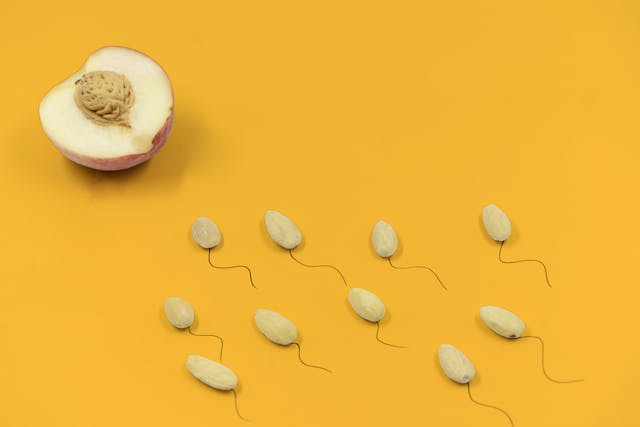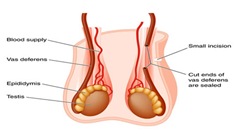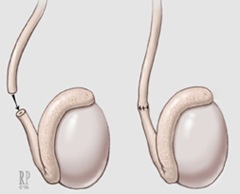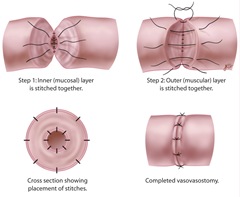 In this blog, we will explore various non-surgical alternatives to vasectomy reversal, helping you understand the available options and their potential benefits. While vasectomy reversal is a common and effective procedure for restoring fertility, it is not the only option available. Some men may seek non-surgical alternatives due to personal preferences, medical reasons, or other considerations.
In this blog, we will explore various non-surgical alternatives to vasectomy reversal, helping you understand the available options and their potential benefits. While vasectomy reversal is a common and effective procedure for restoring fertility, it is not the only option available. Some men may seek non-surgical alternatives due to personal preferences, medical reasons, or other considerations.
Assisted Reproductive Technologies (ART)
Assisted Reproductive Technologies (ART) offer several non-surgical options for achieving pregnancy without reversing a vasectomy. These methods involve retrieving sperm directly from the testicles or epididymis and using them in combination with in vitro fertilization (IVF) or intracytoplasmic sperm injection (ICSI).
Sperm Retrieval Techniques
There are several techniques for retrieving sperm in non-surgical alternatives:
- Testicular Sperm Extraction (TESE): TESE involves extracting sperm directly from the testicles. It is typically performed under local or general anesthesia and involves making a small incision in the testicle to obtain tissue samples. The extracted sperm can then be used in IVF or ICSI procedures.
- Percutaneous Epididymal Sperm Aspiration (PESA): PESA is a less invasive procedure that involves aspirating sperm directly from the epididymis using a fine needle. This technique is performed under local anesthesia and is often used when there are blockages in the vas deferens.
- Microdissection TESE (Micro-TESE): Micro-TESE is a more advanced technique that involves using a high-powered microscope to identify and extract sperm from the testicles. This method is particularly useful for men with very low sperm counts or those with non-obstructive azoospermia.
In Vitro Fertilization (IVF)
IVF is a widely used assisted reproductive technology that involves fertilizing an egg with sperm outside the body in a laboratory setting. The resulting embryos are then transferred to the uterus for implantation.
- Procedure: IVF involves stimulating the woman’s ovaries to produce multiple eggs, retrieving the eggs, fertilizing them with the retrieved sperm in the lab, and transferring the embryos to the uterus.
- Success Rates: The success rates of IVF can vary depending on factors such as the age and health of the female partner, the quality of the sperm, and the specific fertility clinic’s expertise.
- Considerations: IVF can be emotionally and physically demanding, and it often requires multiple cycles to achieve pregnancy. However, it offers a viable option for couples who want to bypass vasectomy reversal.
Intracytoplasmic Sperm Injection (ICSI)
ICSI is a specialized form of IVF that involves injecting a single sperm directly into an egg to achieve fertilization. This technique is particularly useful for men with low sperm counts or poor sperm motility.
- Procedure: ICSI is performed in conjunction with IVF. Once the eggs are retrieved, a single sperm is selected and injected directly into each egg using a fine needle.
- Success Rates: ICSI has high success rates for fertilization, making it a preferred option for couples with severe male factor infertility.
- Considerations: ICSI requires careful handling and expertise, but it significantly increases the chances of successful fertilization and subsequent pregnancy.

Donor Sperm
In some cases, using donor sperm may be considered as an alternative to vasectomy reversal. This option is suitable for men with severe fertility issues or those who prefer not to undergo surgical or ART procedures.
- Procedure: Donor sperm can be used in conjunction with intrauterine insemination (IUI) or IVF. The sperm is thawed and prepared for insemination or fertilization.
- Success Rates: The success rates of using donor sperm depend on the method used (IUI or IVF) and the health of the female partner.
- Considerations: Choosing donor sperm involves legal and ethical considerations, and couples should be well-informed and comfortable with this option.
Counseling and Support
Deciding on the best approach to restore fertility after a vasectomy can be challenging. It is essential to seek counseling and support from fertility specialists, counselors, and support groups to navigate the emotional and practical aspects of these decisions.
Alternatives to Vasectomy Reversal: Conclusion
Non-surgical alternatives to vasectomy reversal offer viable options for men seeking to restore their fertility. Whether through assisted reproductive technologies or donor sperm, couples have multiple paths to achieve their family planning goals.
For expert guidance on non-surgical alternatives to vasectomy reversal and personalized care to support your fertility journey, contact:
Yaniv Larish, MD
4 East 76th Street
New York, NY 10021
Phone: (646) 862-5500
Dr. Yaniv Larish is dedicated to helping couples explore all available options to achieve their family planning goals. Schedule a consultation today to learn more about non-surgical alternatives and find the best approach for your unique situation.


 In this blog, we will explore various non-surgical alternatives to
In this blog, we will explore various non-surgical alternatives to 



